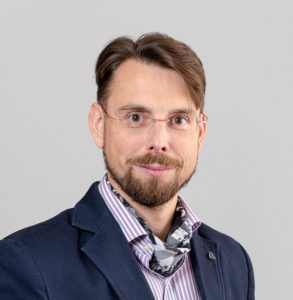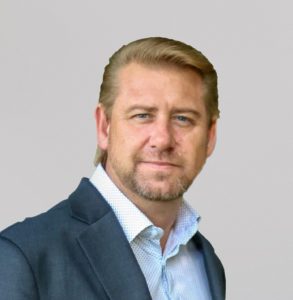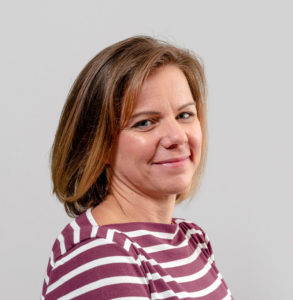“Influencing the macro – a holistic perspective on risk”
30 november 2018

In the risk management arena, Riskonet puts its insurance expertise to work for the benefit of its diverse client base. Knowing about insurance companies and how they operate is vital, but did you know that Riskonet also offers in-depth knowledge of reinsurers’ processes and decision-making? Leo Monse, Riskonet’s trusted risk engineering business partner in Austria, shares his knowledge and ideas on how reinsurers work.
A reinsurer is an insurance company that insures the risks of other insurance companies. How did you acquire your reinsurer expertise?
Leo Monse: “I joined the Risk Management Services Department of Swiss Re some 30 years ago. As a trained fire protection engineer, I used to focus on applied loss prevention and risk improvement aspects, primarily for ‘normal sized’ risks on local markets. Working for Swiss Re and handling very large risks around the world was quite a change for me. As a loss prevention engineer you are trained to collect as much information as possible when conducting a survey (on site). You then use this information to compile your report, which impacts on the insured risk through the mandatory improvements required and reflected in the report’s recommendations.”
What differentiates ‘the world of the reinsurance risk engineer’?
“A risk engineer who works for a reinsurance company normally has hardly any direct contact with insured risks. He or she receives risk information (risk reports) that are generated by cedents around the world. These are insurance companies, who reinsure their risks with the reinsurer. The use of such (often fragmented) information requires special expertise. It is all about finding relevant data in the diverse formats, that are not standardized and often have very limited transparency. It is important to translate these into a structure, that allows for the comparison of risks. Doing this means the engineer has to work with uncertainties and has to make assumptions – very untypical for engineers, who tend to nail down every detail that they can!”
"In treaty business, reinsurers do not examine each and every risk but to a certain point they rely on their cedents, who need trust"
“The assumptions are then cross-checked and supported with other data / info. This work is built on a systematic approach to generate a risk ranking in respect of the risk quality. The two major statements that are required from the reinsurance risk engineer are, first of all, Risk Quality (as the determining element for accepting/refusing reinsurance cover) and secondly, Loss Estimates (as the determining element for capacity provision for cedents). A lot of this expertise is the result of sheer experience and exchange with expert colleagues.”
Riskonet claims to be a knowledgeable and experienced player in the risk management arena. For what type of client may reinsurance expertise become relevant?
“All stakeholders in industrial insurance can benefit from the reinsurers systematic risk handling techniques and benchmarking capabilities, which are based on global markets experience in all relevant industries. First of all, it is the local insurers who often lack the international experience/expertise. Second, there are the brokers, who have limited systematic grading techniques available. Think of the insured, these are the industrial companies, who do not have real benchmarking options with their competitors. Larger companies have to demonstrate an own risk culture that they have built up for their risks – they all benefit substantially from Reinsurance know-how.”
“The same elements are extremely important for the development of risk engineering tools for loss prevention, risk grading and risk quantification. Therefore, risk consultants and loss prevention engineers also benefit from this special expertise.”
How does Riskonet’s better understanding of reinsurers benefit clients?
“We know how to systematically analyse risks and provide transparent risk gradings – allowing for adequate risk handling, implementing of improvements and proper placement in insurance markets. We are accustomed to all relevant loss estimate approaches of the diverse carriers in different markets and can handle these accordingly. In short: we speak the reinsurer’s language – when required.”
Reinsurers may sometimes have a different approach to risks. In general, they tend to have a longer-term view on risks than insurers. Do you agree?
“I do. This is partly because of their nature, partly because of the way they operate. Given the indirect relation of reinsurers towards the insured, they have substantially less workforce than direct insurers, who take care of their insured. In treaty business(which is the largest part of the overall turnover), reinsurers do not examine each and every risk but to a certain point they rely on their cedents, who need trust. Trust has to be built up, which needs time and a ‘long term view’. Depending on the results of the portfolios, these are adjusted on an annual basis.”
“In facultative business (which is single risk)the reinsurer checks each individual risk (similar to the direct insurer) to make a decision. The reinsurer has to rely on information that is received, because he or she is not in a position to survey each and every offer that is received from the cedent or broker. This business model does not successfully work without a ‘long term view’.”
Why is it that reinsurers sometimes want additional information about certain activities and risks – and even impose limitations?
“Reinsurers may have certain insurance products available, which can be of interest for the insured (e.g. Cyber, ISBI, NatCat, etc.). Therefore, additional information might be needed. However, capacities for certain markets might be limited – a good example is NatCat: Coverage is limited for flood or earthquake exposures, if your premises are located in exposed areas. Basically, the reinsurer tries to have a macro or even a ‘holistic’ perspective on the risk.”
How can we – with the help of Riskonet – effectively influence this perspective on risk?
“I believe that efficient and adequate risk transfer will more increasingly depend on proper and transparent risk handling, transparent risk information and related documentation (i.e. an ‘engineered’ perspective). In the near future it will not be enough to write long reports with excessive data sampling (unfortunately: like many ‘regular’ risk reports in the market) but provide concise and transparent information. It is a matter of raising the bar, as is already happening in other aspects of the business world. If you want money from your bank manager, he or she will ask for much more information now than he or she required years ago, as investments nowadays are based on excessive due diligence steps, trying to allow for ‘engineered’ decisions. At Riskonet, we are positioned to provide the necessary know-how and guidance.”





